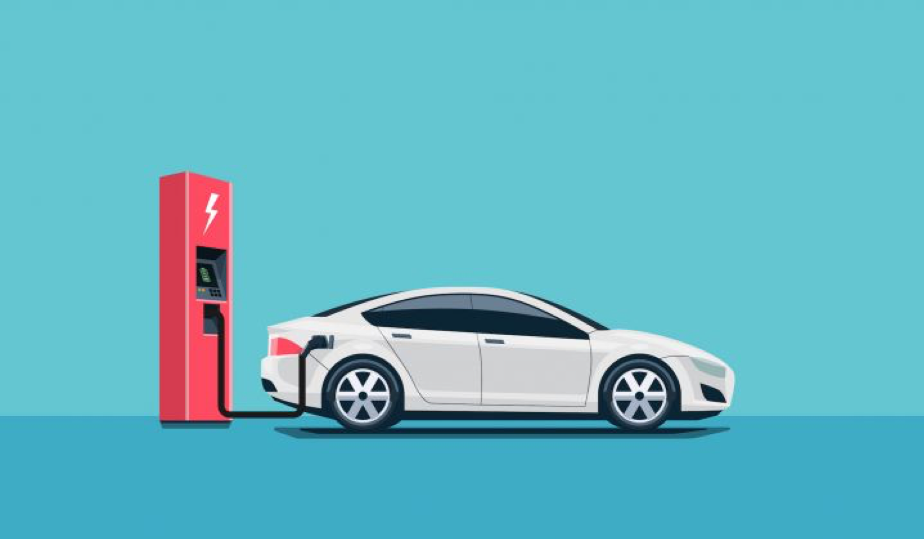The Rise of Electric Vehicles
Electric vehicles are the future, in August last year cumulative sales of Electric Vehicles (EV) hit 4 million. This is a number that is going to grow quicker and quicker as the years go on. However, there is one country that outperforms the rest, in both demand and supply, China. The Chinese market has purchased 35% of all EV’s sold so far. China also produced 43% of the world’s electric vehicles in 2016, a figure that is only going to increase. Where does this demand for electric cars come from, how will this change going forward and what companies are driving this trend?
Electric Vehicles Macro Environment
The Chinese government is dedicated to increasing the number of EV’s present in most of the cities. There are many reasons for this, the Paris Climate Agreement, the smog & pollution problem and the goal to reduce the dependence on foreign countries for oil. Ultimately it means that companies operating in the electric vehicle market have a clear path forward, and those producing vehicles that are not considered green have some difficult decisions to make.
The governmental policy came in the form of subsidies knocking tens of thousands of yuan off the price when consumers purchased electric vehicles. The government also limits access to license plates for people who buy non-electric cars, people either have to pay hefty costs or enter into a lottery system to get their license plate. Meanwhile, for those purchasing electric vehicles license plates are free.
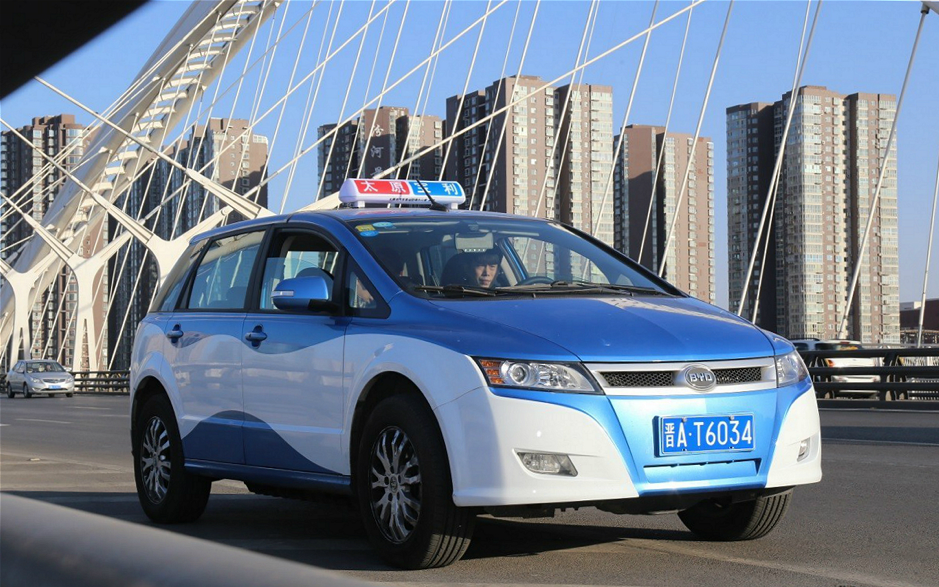
Going Forward?
In addition, a new policy has recently been implemented to increase the supply. New quotas are in place that incentivize firms to produce greater amounts of low emission vehicles. This has resulted in larger firm heavily investing in the EV market or linking with Chinese EV producers. For example, BMW is partnering with a Chinese firm Great Wall to produce the necessary amount of EVs under the new quotas.
Furthermore, the State Grid Corporation of China also plans to build 120,000 public charging stations for electric vehicles by 2020. Alvin Huen, the Managing Director of Insight Focus said, "this is a necessary step, as one of the factors holding people back from purchasing EV’s is lacking of easy access to charging stations."
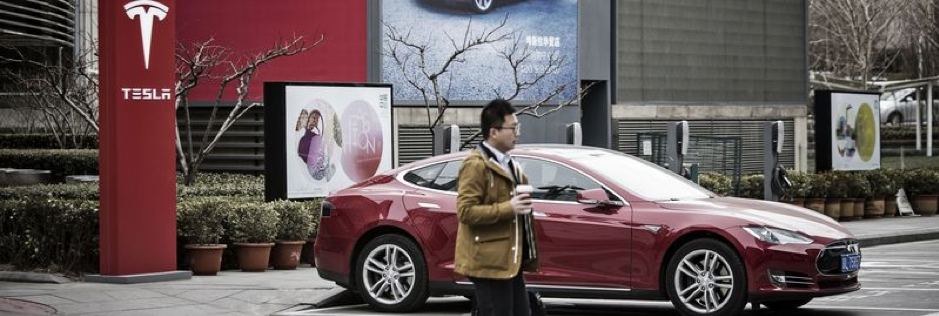
Big Players in the EV Market
Many different Chinese firms exist that specialize in producing EVs. "In fact, at a recent car show in Beijing, seven out of ten “new electric vehicles” were manufactured by Chinese companies." Alvin continued. Of those companies, the top three are Beijing Auto, Geely ZhiDou and BYD. Beijing Auto is a state owned vehicle manufacturer that is often considered to be the fourth/fifth largest automobile producer in China. BYD is currently the world’s second-largest producer of EV’s after Tesla. In 2017 they sold 114,000 “new energy vehicles” a number that is only going to increase. BYD has also been ranked number one in china for EV sales for the last four years. However, Tesla still dominates the high-end Chinese market; while, the low and medium markets are dominated by Chinese firms. Tesla has also realized the scale of the Chinese EV Market and has a factory just outside Shanghai to avoid American tariffs and get cars directly to Chinese customers. There is also a new Tesla model planned, the model Y, that is specifically for the Chinese market.
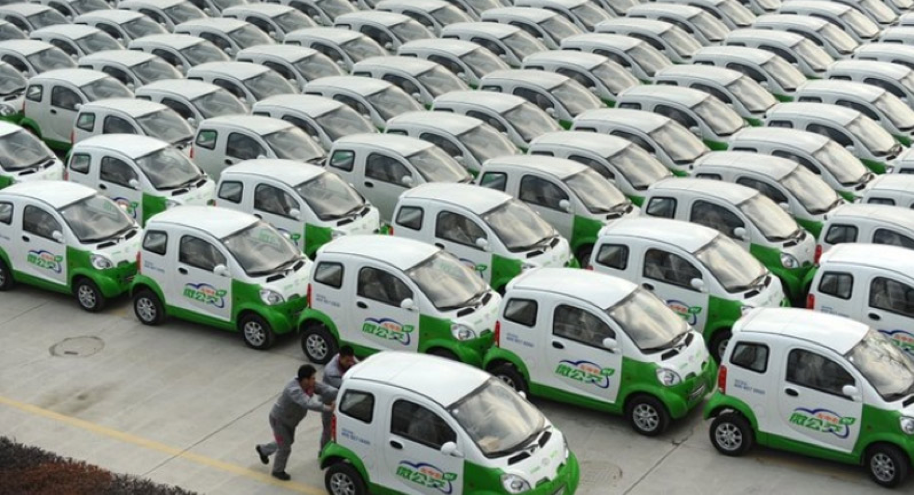
Consumer Perspective on EVs
But how do Chinese consumers feel about electric vehicles? A recent survey shows that Chinese consumers overwhelmingly prefer buying Chinese made EV’s. In 2017 96% of all EV’s sold were produced by Chinese companies. However, EV’s still only make up a small percentage of the Chinese car market, in 2017 EV sales were 2.2% of vehicle sales. This number is sure to rise though, with 86% of people in a 2017 survey agreeing that new-energy vehicles would replace internal combustion engine cars.
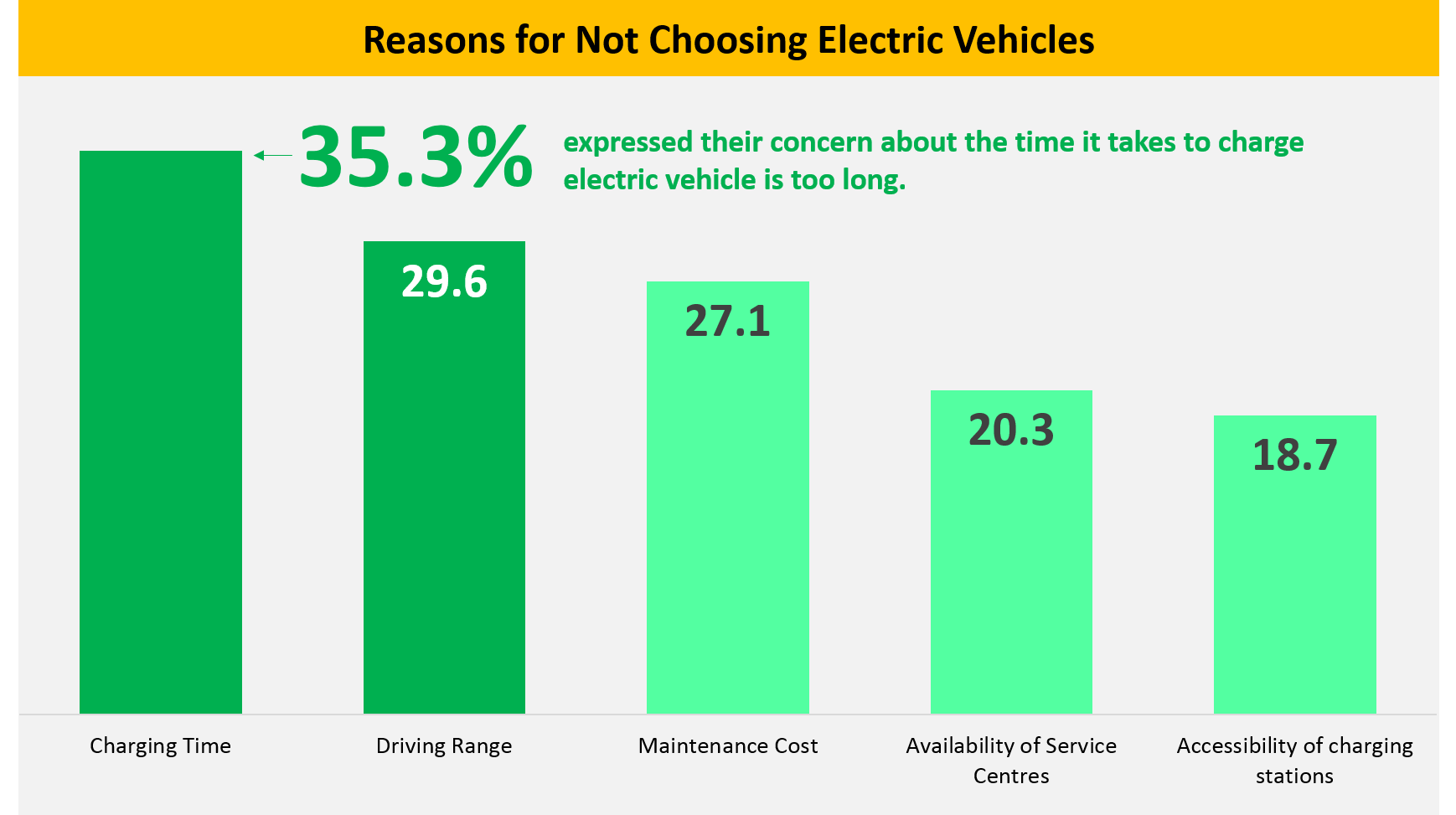
An recent study by Insight Focus found factors that made people more likely to purchase EVs. White collar workers, highly educated people, and consumers who are knowledgeable about EV policies are some of those who are more likely to acquire EVs. The study also found out concerns people have about EV’s. The consumers cared about the time it takes vehicles to charge and were willing to pay extra for EV’s with 1-hour charge times. However, consumers considered three and five-hour charging times to be approximately the same. Consumers also preferred EV’s with greater driving range. Additional concerns held by customers are the high cost of maintenance of EV’s, the availability of service centres and finally the accessibility of charging stations. Firms looking to succeed in the EV market must be able to assuage these concerns. Overall the Chinese EV market continues to grow at a rapid pace and represents a vital step on the path towards a green environmentally friendly future for mankind.


